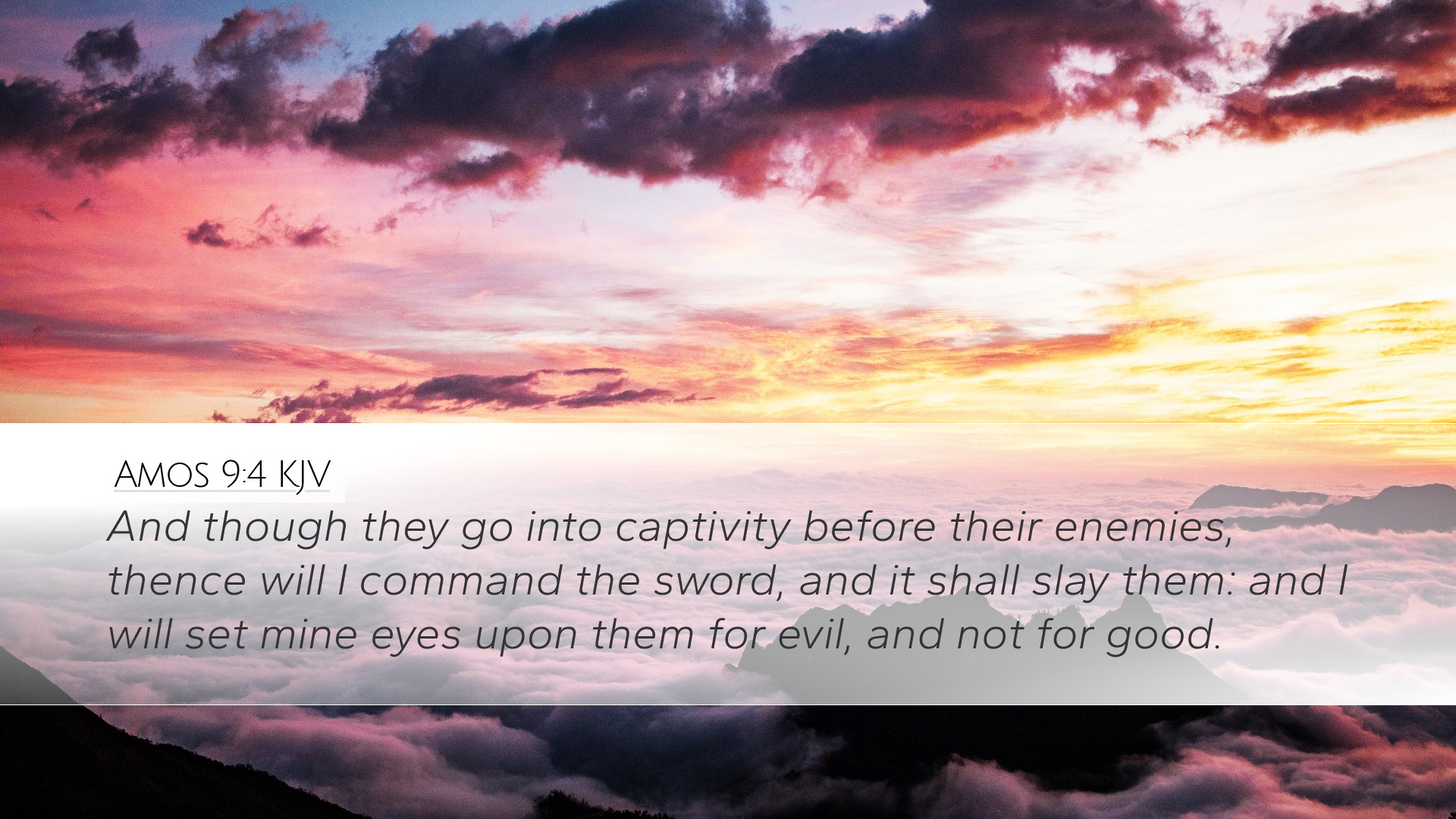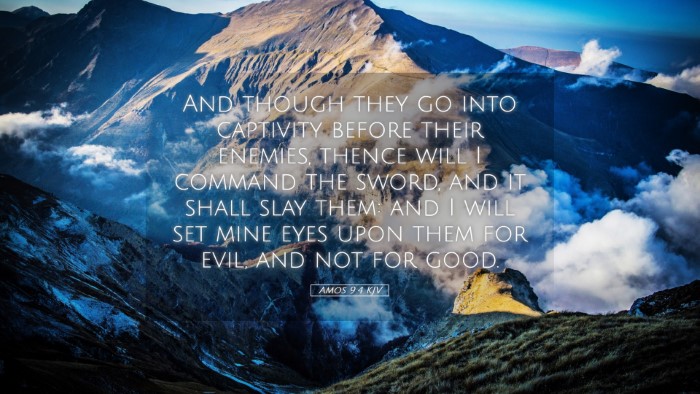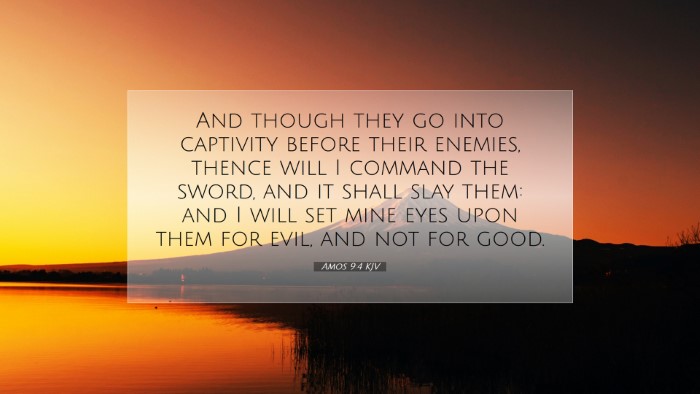Old Testament
Genesis Exodus Leviticus Numbers Deuteronomy Joshua Judges Ruth 1 Samuel 2 Samuel 1 Kings 2 Kings 1 Chronicles 2 Chronicles Ezra Nehemiah Esther Job Psalms Proverbs Ecclesiastes Song of Solomon Isaiah Jeremiah Lamentations Ezekiel Daniel Hosea Joel Amos Obadiah Jonah Micah Nahum Habakkuk Zephaniah Haggai Zechariah MalachiAmos 9:4
Amos 9:4 KJV
And though they go into captivity before their enemies, thence will I command the sword, and it shall slay them: and I will set mine eyes upon them for evil, and not for good.
Amos 9:4 Bible Commentary
Commentary on Amos 9:4
Amos 9:4 (KJV): "And though they go into captivity before their enemies, thence will I command the sword, and it shall slay them: and I will set mine eyes upon them for evil, and not for good."
Introduction
The book of Amos stands as a powerful indictment of social injustices and religious insincerity in Israel. In Chapter 9, God’s judgment is pronounced with stark clarity. Verse 4 acts as a culmination of God’s warning, representing both a moment of despair and an invitation to consider the weight of His sovereignty and divine purpose in the face of human sin.
The Theme of Captivity
Matthew Henry, in his comprehensive commentary, emphasizes the reality of captivity faced by the Israelites as a consequence of their rebellion against God.
- Consequences of Sin: The verse illustrates a crucial theological principle: sin leads to judgment. The captivity symbolizes the ultimate separation from God's favor.
- Divine Sovereignty: Despite the dire situation, God remains in control. The term "thence will I command the sword" indicates that even in their distress, God’s authority prevails.
God’s Judgment
Albert Barnes interprets this passage as a demonstration of God's unyielding justice. He notes that the “sword” represents both literal violence and the broader consequences of divine judgment upon sin.
- Implementation of Judgment: The concept of the sword emphasizes decisiveness in God’s actions against His people. Barnes asserts that while they face execution by their enemies, it is also a manifestation of divine will being carried out.
- Eyes for Evil or Good: God's gaze is suggestive of both attention and response, where blessings are contingent upon obedience, whereas disobedience elicits wrath.
Reflection on Evil and Good
Adam Clarke delves into the implications of God’s watchful eye. He posits that God’s stance towards a nation or people can switch based on their actions and adherence to His covenant.
- God's Attributes: Clarke emphasizes the duality of God’s nature as both merciful and just. Israel’s rebellion had provoked a response that was entirely justifiable.
- Call for Repentance: This commentary suggests that within the threat of judgment lies an appeal to change. While God’s judgment appears harsh, it opens a pathway to redemption through repentance.
Theological Implications
In understanding Amos 9:4, several theological implications emerge that are pertinent for contemporary applications:
- Restorative Justice: The judgment is not solely punitive. It seeks to restore a covenant relationship that has been severed by sin.
- Transformative Repentance: The passage invites an examination of personal and communal repentance. Similar to the Israelites, believers today must consider the implications of their actions and the inherent call to return to a faithful walk with God.
- Hope in Judgment: Even amidst judgment, God’s sovereignty allows for the possibility of future restoration, which is a critical theme throughout the prophets.
Conclusion
Amos 9:4 stands as a sobering reminder of the reality of divine judgment, the need for genuine repentance, and the broader themes of justice and hope within God's character. For pastors and theologians, this verse serves not only as a warning of the serious consequences of sin but also as a profound invitation to engage in the transformative power of God's grace.


